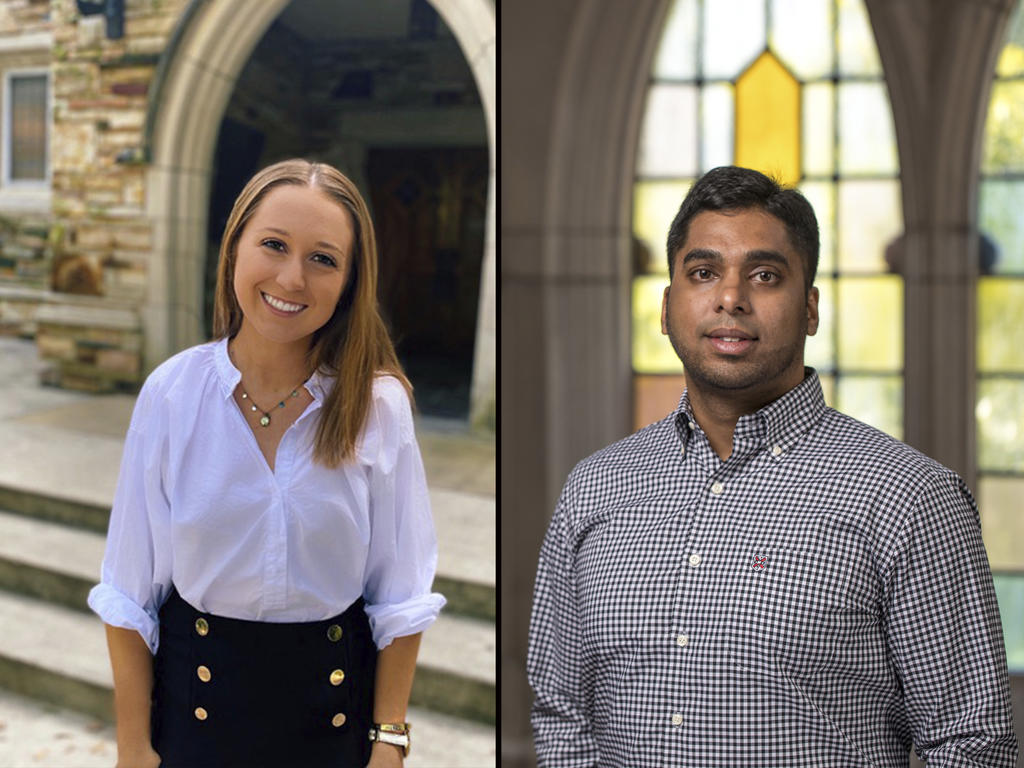Rhodes students are known for being intellectually curious and self-motivated, but it always helps to have the guidance of faculty mentors.
When Natalie Smith ’22 became a research assistant for Dr. Ali Masood, assistant professor of political science, in her sophomore year, he walked her through the process of using research methods to analyze and code data related to the dynamics of the American judicial system to gain insight into the functionality of the courts.
Smith’s interest in gerrymandering and the redrawing of electoral lines also had been piqued in her political science courses, and she decided to create a research project with a focus on redistricting cases in the American federal judiciary.
“The redrawing of electoral lines fascinated me because it involves issues of racial equality, identity politics, proportional representation, partisan power, population equivalence, and voting rights,” says Smith. “It is a complex and salient issue with political implications that affect every person living in the United States.”
Smith submitted a proposal to Rhodes’ director of fellowships and undergraduate research that ultimately landed her fellowship from the Steve and Riea Lainoff Fellowship Program, made possible through the generosity of Steve and Riea Lainoff, parents of Rhodes graduates Brian Lainoff ’11 and Mark Lainoff ’15.
“Throughout the research process, I have been working closely with Professor Masood, who has helped me refine my topic, showed me how I could more effectively code/collect my data, and, more generally, has been an incredible support system for any issues or questions that I have had along the way,” says Smith.
To conduct the research, Smith read through and coded 630 federal redistricting cases between the years 1910 and 2019 using the NexisUni database. “For each case, I coded over 50 variables, some of the most important being the treatment of the decision, the ideological direction of the decision, the directionality of the lower court decision, the type of gerrymander claim being made, the ideological scores of each judge on the court, and the party of the state legislature who drew the district lines. Once I coded my data set, I used Stata Programming Software to analyze my data.”
Smith says that her research has given her a better understanding of the bureaucratic nature of the American court system, and that in most redistricting cases, there is “a lack of accountability, consistency, and equality by the courts.” Smith’s findings also suggest that “a lack of Supreme Court precedent has led to significantly high turnover rates and politically motivated judicial decisions across jurisdictions.”
“Natalie’s project is well thought out and well executed and, with some revisions, should be publishable in a peer-reviewed outlet,” says Masood, who has published articles on the relationships between different courts and how judicial decisions are communicated between the Supreme Court and intermediate appellate courts.
“I look up to my professors more than anyone else because I aspire to be like many of them in the future,” says Smith. “They are the people that continue to motivate me to work hard and pursue what I am interested in learning.”
Smith recently was awarded the Seidman Award in Political Science at Rhodes, and she intends to pursue a Ph.D. program in political science after completing her undergraduate work at Rhodes.
